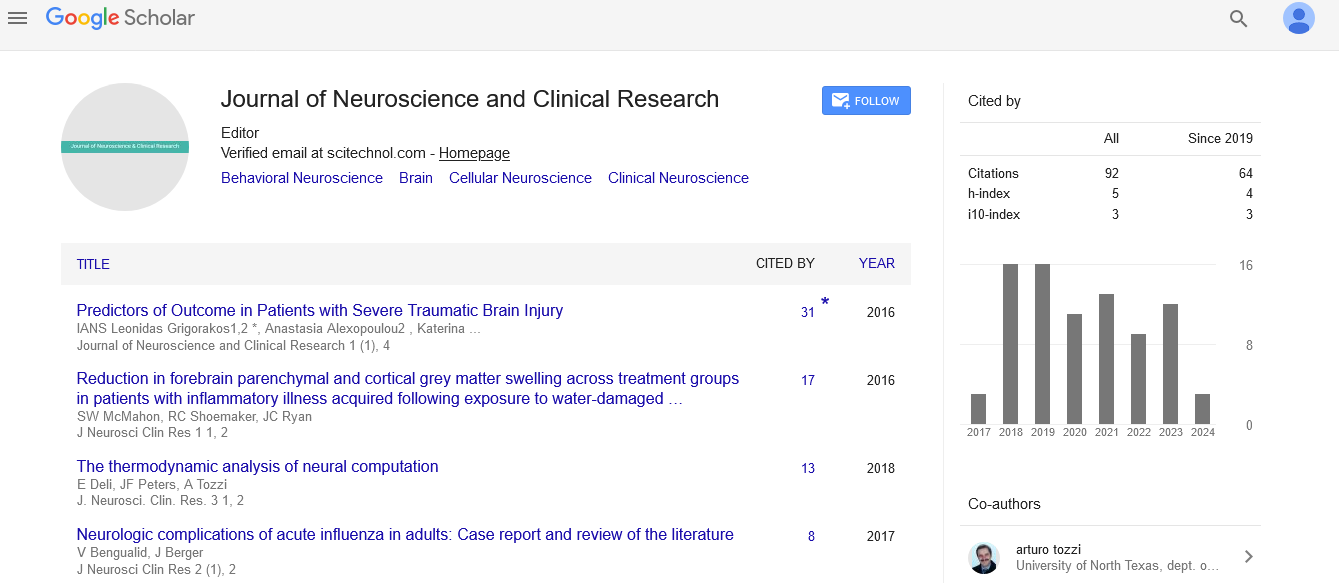A short intracerebroventricular mTOR inhibitors causes complete and long-lasting cognitive recovery in an animal model of alzheimer’s disease
Diego Dolcetta
The Regina Elena National Cancer Institute, Italy
: J Neurosci Clin Res
Abstract
Statement of the Problem: Rapamycin and other mTOR inhibitors have been shown to improve Alzheimer's Disease (AD), by acting in several key-points of pathogenesis. This has led to think of a central pathogenetic role of the mTOR hyperactivation. The inhibition of this kinase reduces both the synthesis of the precursors of beta-amyloid and the accumulation of the latter, thanks to the activation of autophagy. This has a preventive effect, but especially therapeutic in already established disease, as long as initial. Recently Kurdi, et al. showed that after a few days of mTOR inhibition, autophagy escapes the control of mTOR. We thought that a high dose for a few days was the best way to harness the therapeutic efficacy of rapalogs. Since rapalogs are not burdened by heavy neurological side effects, this dose can be achieved only locally via Intracerebroventricular Infusion (ICV).
Methods: In mice 3xTg-AD, an excellent animal model of AD, ICV administration of a rapalog for 7 days in mice of 6 months of age, with an initial but measurable cognitive impairment.
Results: The treatment produced a full restoration of cognition with corresponding pathological evidences. The benefits lasted for about two months from administration. Mice were then sacrificed, so we do not know the exact duration of the therapeutic effect.
Conclusion: We believe that this therapy, certainly invasive but very short and surprisingly effective, deserves to be tested on patients as soon as the diagnosis is established.
Biography
Diego Dolcetta has obtained his PhD in Neuroscience, during his studies he has worked on gene therapy of lysosomal storage disorders at the Telethon Institute of Gene Therapy (TIGET) located in the San Raffaele Hospital in Milan. After a short experience in the Stem Cell Research Institute (SCRI) in the same hospital, he moved to Vicenza (BIRD) in 2008, where he undertook the study of other rare genetic diseases such as the Lesch-Nyhan disease. Since 2014 he works as a Guest Researcher at the Laboratory of Dr. Federico De Marco of the IFO-IRE Institute, Rome.
E-mail: diego.dolcetta@gmail.com
 Spanish
Spanish  Chinese
Chinese  Russian
Russian  German
German  French
French  Japanese
Japanese  Portuguese
Portuguese  Hindi
Hindi 